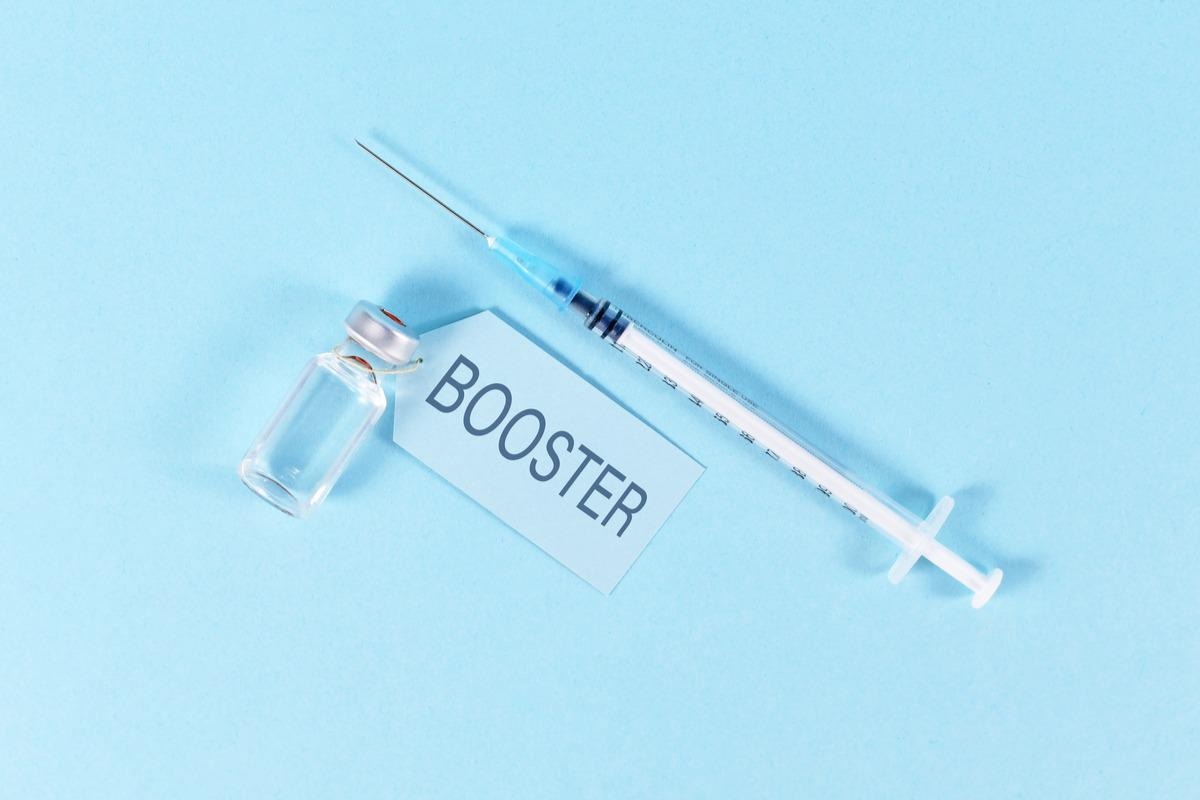A recent study conducted by the Centers for Disease Control and Prevention (CDC), USA, has stated that the third booster dose of mRNA-based coronavirus disease 2019 (COVID-19) vaccines is 68% effective in preventing reinfection-related hospitalization among persons with a history of severe acute respiratory syndrome coronavirus 2 (SARS-CoV-2) infection.

The study has recently been published in the CDC’s Morbidity and Mortality Weekly Report.
Background
SARS-CoV-2, the causative pathogen of COVID-19 pandemic, is a deadly member of the human beta-coronavirus family. The virus has so far caused more than 497 million infections and 6.1 million deaths worldwide. Among various variants of SARS-CoV-2, the most recently emerged omicron variant has been found to have high immune evasion ability, leading to a global rise in breakthrough infections.
There is real-world evidence indicating that previous SARS-CoV-2 infection could provide 90% protection against reinfection and related hospitalization. However, because of the immune evasion potency of the omicron variant, a considerable reduction in infection-mediated protection has been observed globally during the omicron-dominated wave.
In the current study, the scientists have estimated the effectiveness of mRNA-based COVID-19 vaccines in providing protection against reinfection-related hospitalization among previously infected adult individuals.
The study cohort
The data for the analysis was obtained from an electronic health record data set that includes details of more than 135 million US-based patients. The study cohort included adult US residents with a history of laboratory-confirmed SARS-CoV-2 infection and related hospitalization during the delta-dominated and omicron-dominated waves (total study duration: June 2021 – February 2022).
Based on the vaccination status, the patients were categorized into four groups, including first-dose vaccinated, second-dose vaccinated, third (booster)-dose vaccinated, and unvaccinated. A total of 3,761 vaccinated patients with records of a previous infection were compared with 7,522 vaccinated patients without any previous infection.
Among patients with the previous infection, 61% were unvaccinated and 4%, 27%, and 6% were first-dose, second-dose, and booster-dose vaccinated, respectively. Among patients without previous infection, 47% were unvaccinated and 5%, 33%, and 13% were first-dose, second-dose, and booster-dose vaccinated, respectively.
Estimation of vaccine effectiveness
Vaccine effectiveness was estimated after each vaccine dose using conditional logistic regression analysis.
During the delta-dominated wave, the vaccine effectiveness against reinfection-related hospitalization was estimated to be 58%, 47%, and 57% after the first, second, and booster doses, respectively.
During the omicron-dominated wave, the vaccination effectiveness was estimated to be 33%, 34%, and 68% after the first, second, and booster doses, respectively.
Among patients with a previous infection before receiving the first vaccine dose, the vaccine effectiveness was estimated to be 43%, 41%, and 70% after the first, second, and booster doses, respectively.
Among patients who had developed infection between the second and booster doses, the vaccine effectiveness was estimated to be 50% after the booster dose. Overall, no significant difference in vaccine effectiveness was observed between patients under and above the age of 65 years.
Study significance
The study findings reveal that mRNA-based COVID-19 vaccines can protect previously infected persons against subsequent COVID-19-related hospitalization. The highest level of protection has been provided by the third booster dose, which ranges from 60% – to 70% during the delta and omicron waves.
Although an equivalent booster vaccination efficacy has been observed during the delta and omicron waves, a significant drop in protection provided by the first or second dose has been observed during the omicron wave compared to that during the delta wave. This highlights the importance of booster vaccination even in persons with previous SARS-CoV-2 infection.
A sharp rise in breakthrough infections has been observed in the USA during the omicron wave. Given the improved immune fitness of omicron, a booster vaccination is considered to be the safest preventive measure against reinfection.
Based on the current study findings, the scientists suggest that all eligible persons, including those with a history of SARS-CoV-2 infection, should consider taking all recommended doses of COVID-19 vaccines. This will not only protect the general population against severe disease but also reduce the burden on the healthcare system.
- Ian D. Plumb, et al. (2022). Effectiveness of COVID-19 mRNA Vaccination in Preventing COVID-19–Associated Hospitalization Among Adults with Previous SARS-CoV-2 Infection — United States, June 2021–February 2022. Morbidity and Mortality Weekly Report. doi: http://dx.doi.org/10.15585/mmwr.mm7115e2 https://www.cdc.gov/mmwr/volumes/71/wr/mm7115e2.htm?s_cid=mm7115e2_w#contribAff
Posted in: Medical Science News | Medical Research News | Disease/Infection News
Tags: Coronavirus, Coronavirus Disease COVID-19, covid-19, Efficacy, Electronic Health Record, Healthcare, Laboratory, Mortality, Omicron, Pandemic, Pathogen, Respiratory, SARS, SARS-CoV-2, Severe Acute Respiratory, Severe Acute Respiratory Syndrome, Syndrome, Vaccine, Virus

Written by
Dr. Sanchari Sinha Dutta
Dr. Sanchari Sinha Dutta is a science communicator who believes in spreading the power of science in every corner of the world. She has a Bachelor of Science (B.Sc.) degree and a Master's of Science (M.Sc.) in biology and human physiology. Following her Master's degree, Sanchari went on to study a Ph.D. in human physiology. She has authored more than 10 original research articles, all of which have been published in world renowned international journals.
Source: Read Full Article
